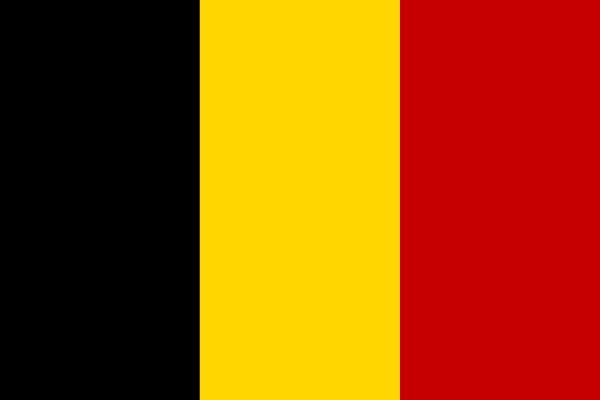
KEVIN DUERINCK
GENEALOGY PAGE



Last revised January 25, 2004 (links)
ORIGINS OF DUERINCK(S)/DURIN(CK)(X)/DURING/DEURINGEN/DURINCX/DURICK etc.:
- Dr. Fr. DeBrabandere: Durin(ck)(x), Durin(ck), During, Duerinck(s), Deuringen, Durincx, Durick are a patronicum, a derivation from the Germanic given name "Duro or Duringius" (Morlet I).
- A.N.W. Van Der Plank: Duerink(c/s/x/k), Duurs, Duursema, Duursma are patronicums of "Dure" or "Thuro", which are very old names. "Thuro" was a Gothic commander. Further, the name is quite common in Thuringen, Germany.
- Patrick Hanks & Flavia Hodges (1989): "During" name is Germanic. It is a regional name for someone from Thuringia. The region is named from its former occupation by the Germanic tribe of the Turingii (Thuringii), displaced in the 6th century A.D. This tribal name has been tentatively connected with the element "tur-" to dare (cf. ON dora). The surname is especially common in Silesia, Saxony, and Bohemia as a result of the Germanic expansion eastwards during the early Middle Ages [Note from Kevin: actually, the Turingii tribe was from the Elbe/Saal River region, and expansion for the Turingii was a bit south and others a bit west, crossing to the west of the Rhine River into Frank's Tribe territory. Studies stating that the Turingii moved south out of Scandinavia and Jutland are not backed up by archaeological evidence]. Variants: During, Duhri(n)g, Durich, Dorich, Dierich. Cognitives: Low German: Do(h)ring. [Note: oomlauts or dieresis marks omitted]
- B.J. Hekket: The suffix "ing" = "ink", dates back to the early germanic times, and signified principally "a belonging to". Later it was also used as signifying "son from" and it is in that way it was used to form names, as a suffix to given names. The form was not only used in the Eastern Netherlands, but in the whole of Germanic linguistic territory, principally in Old Saxon and Anglo-Saxon parts.
- Dr. B.H. Slicher van Bath: described in his book ‘Mensch en Land in de Middeleeuwen’ (People and property in the Middle Ages). Dr. Slicher van Bath’s extensive research focuses on the Eastern provinces of the Netherlands. One peculiarity of the language was closely studied. He emphasizes that there is one specific name suffix peculiar to this particular geographical area: the suffixes - ‘ing’ and ‘ink’ which are also particularly indigenous to Eastern England. In the Netherlands, names with these suffixes only occur outside of the Eastern provinces in insignificant numbers. The origin of names comprising ‘ing’, as an entity, dates only from the 12th century, but the compound of a name with the suffix -ing dates back to the 9th century. Significantly, these - ing names are found also to occur in England and especially in the east, the area most exposed to Saxon influence. Ekwall therefore attributes these names specifically to Saxon influence. He also attributes the fact that similar names occur on the continent and in Scandinavia to the Saxons, the names being very old. In the eastern Netherlands there are 49 names which correspond with those in England. In Sussex there are 39 and in the eastern provinces of the Netherlands 50 compounds of a name with the suffix -ing. This parallel is unusual and therefore led researchers to conclude that the origin in both countries is Saxon.
- Gustav Rüthning, a German genealogist, has spoken of a connection between Thuringia and the various surname spellings above.
- In "Deutsches Namenlexicon" by Hans Bahlow, he states that the names Doering and Doehring date back to medieval times and refer to persons from Thuringan.
- The famous lyric poet Walther von der Vogelweide, who was born in 1170, wrote about "die Dueringe und die Sachsen" (the Thuringians and the Saxonians), making it evident, that Duering (or the more common Doering or Doehring) being the old term for Thuringian. Thanks to the Dorgerloh clan of Germany for tipping me off to this wonderful poet and lyricist, and I also want to thank Peter Krahmer, Wuerzburg, Germany, for furnishing snippets of, and translations of, Vogelweide's work.
- It is also rumored that the Duerinck clans at one time lived in the Land van Saeftinghe, in the Netherlands. When the dikes were intentionally destroyed to prevent the Spanish from conquering the area, along with Antwerp, the story goes that the Duerinck clans followed the River Schelde into what is now known as Belgium.
ONSITE LINKS
Turingii Tribe
Germanic Tribes
Franks Tribe
Suggested Reading

HOME
CONTACT INFORMATION
Copyright © 1997-2004 Kevin F. Duerinck





